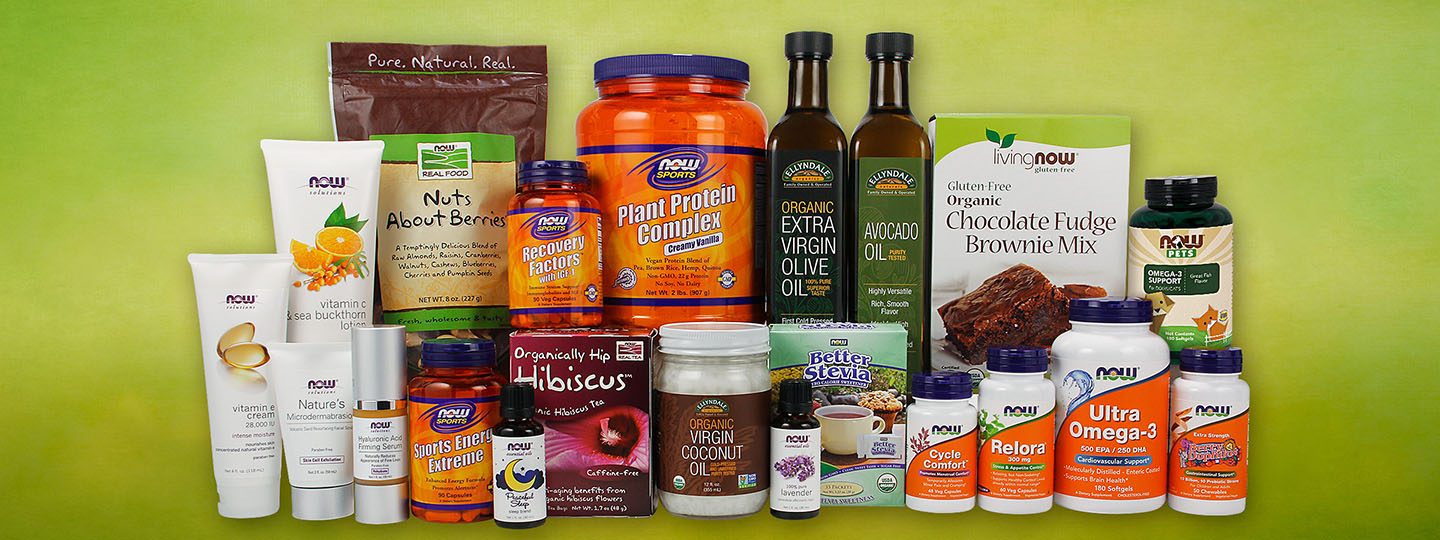General Products FAQs
How do I know that NOW® products are safe?
NOW® has Good Manufacturing Practices (GMP) certification from the Natural Products Association (NPA), the largest dietary supplement trade association in the U.S. GMP certification means that every aspect of our manufacturing process has been examined, including our laboratory and testing methods, for stability, potency and product formulation, and we’ve consistently maintained an ‘A’ rating since 2000. NOW is also a member of NPA’s TruLabel Program, the industry’s most expansive and successful self-regulatory program.
Read more about NPA’s GMP and TruLabel Programs.
In addition, NOW owns and operates one of the best private laboratory facilities in the industry, allowing us to perform up to 16,000 tests on a monthly basis, helping us ensure safety and purity for all NOW® products.
After I open a product, how long will it retain its labeled potency?
NOW products include an expiration date, which assures that, provided the product has been kept at or below room temperature (72 degrees F) and in a dry environment, it will retain its labeled potency at least to the expiration date.
Products labeled as “keep refrigerated” should be kept so throughout the life of the product and should be refrigerated immediately after opening. For some products, several days without refrigeration may not affect them much, but longer periods will. For other products, refrigeration ensures that the product is kept in a low humidity environment rather than a low temperature environment. Refrigeration is advised to extend the shelf life of many products, especially fish oils, nutritional oils, almond oil, and probiotics, to name a few.
Any freshness packets and inserts should be left in the bottle until product has been completely used. This helps prevent oxidation and keeps the product fresher for a longer period of time. Discard any packets and inserts prior to recycling any packaging.
What are the Ageless® desiccant, and charcoal packets in dietary supplement bottles?
These packets are used to absorb excess moisture, oxygen or odor within the bottle, and extend the shelf life of the product. NOW uses Ageless® packets to extend shelf life and to protect many of our products from degradation
Why are there color variations in some of your products?
Color variation occurs with most natural products, and can occur for a variety of reasons including the product’s country of origin, the condition of the soil where the product was grown, enzyme activity, moisture content, heat, and oxidation. Products containing a combination of ingredients are typically more prone to color variation. This is completely normal and does not affect product quality in any way.
Why are trademark names displayed on NOW product labels for some ingredients?
At NOW we always seek only the highest quality ingredients for our products. Trademarked ingredients indicate that proprietary methods are used in their formulation, methods that generally increase the product’s quality and value to consumers. Trademarked ingredients also tend to have a higher degree of scientific backing than non-trademarked ingredients, since the trademark owners often perform additional standardization and frequently submit their material for use in scientific studies. Consumers may contact the trademarked ingredient manufacturers for more information.
Where do you obtain the gelatin used in your hard gelatin caps?
The gelatin used in our capsules is obtained through the processing of collagen derived from beef sources. Softgel capsules are also typically derived from beef gelatin. For vegetarians NOW offers a growing number of supplements in vegetable capsules (Veg Caps), which are made from plant cellulose or polysaccharides.
Some of your products contain sodium benzoate. I recently heard something about this being a problem in soft drinks. Is there any danger with this in your products?
Benzoic acid, benzoates, and related compounds have been extensively studied and have a long history of safe use. These compounds occur naturally in foods such as fruits and berries and form naturally during normal plant metabolic processes.
Since the 1990s the FDA has been aware that benzene, a carcinogen, could form at the parts per billion (ppb) level in some soft drinks that contained benzoate preservatives and ascorbic acid (vitamin C). The vast majority of beverages with these ingredients that were evaluated contained either no detectable benzene or levels below the 5 ppb limit for drinking water, which does not constitute an imminent health hazard.
Our Quality Assurance department is aware of the reports. We have tested all of our products containing benzoates and vitamin C and determined them to contain no benzene (none detected). We will continue to monitor for any new developments.



